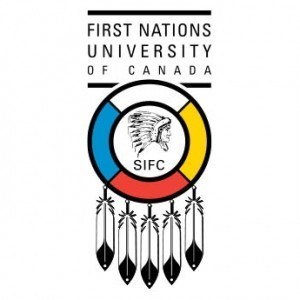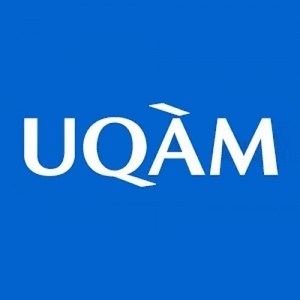The Bachelor of Arts in Resource and Environmental Studies (BARES) is a joint program with Saskatchewan Polytechnic Woodland Campus (Prince Albert) and First Nations University of Canada.BARES provides opportunities for First Nations and non-First Nations students whose goals for the future include participation in the successful management of natural resources in Saskatchewan and across Canada. Students will have an opportunity to learn foundational Indigenous concepts and perspectives in the context of environment, conservation and natural resource issues.
Field of study: Environmental Studies, Natural Resources/Conservation, General
Resource and Environmental Studies at First Nations University of Canada offers a comprehensive interdisciplinary program designed to prepare students for addressing complex environmental challenges faced by Indigenous communities and beyond. The curriculum combines foundational knowledge in natural sciences, social sciences, and Indigenous perspectives to develop well-rounded environmental professionals. Students will explore topics such as environmental management, conservation, renewable resources, Indigenous land rights, and sustainable development, gaining both theoretical understanding and practical skills. The program emphasizes the importance of Indigenous knowledge systems and promotes the integration of traditional ecological knowledge with contemporary environmental science.
Throughout the course of study, students are encouraged to engage in experiential learning opportunities, including fieldwork, community projects, and internships, which foster real-world application of their skills and strengthen their understanding of environmental issues from an Indigenous perspective. The program also emphasizes Indigenous leadership and advocacy, preparing graduates to become effective champions for environmental stewardship within their communities and broader society. Upon completion, students will be equipped to pursue careers in environmental consulting, resource management, policy development, and community development, particularly in Indigenous contexts.
The faculty members are committed to fostering a respectful and inclusive academic environment that values Indigenous voices and perspectives. The program also offers opportunities for advanced research and specialization in areas such as climate change adaptation, natural resource management, and ecological restoration. With a focus on sustainability, cultural integrity, and social justice, Resource and Environmental Studies at First Nations University of Canada prepares students to become innovative leaders committed to fostering environmental resilience and supporting the well-being of Indigenous peoples and the planet.
Program Requirements: The Resource and Environmental Studies program at the First Nations University of Canada is designed to provide students with a comprehensive understanding of environmental management, resource use, and Indigenous perspectives on sustainability. Prospective students are typically required to hold a high school diploma or equivalent for undergraduate admission. Applicants may need to submit transcripts demonstrating academic proficiency, along with letters of intent and possibly references outlining their interest and background in environmental issues. Transfer students are usually evaluated on their previous post-secondary coursework to determine credit transferability.
For the Bachelor’s Degree, students must complete a minimum of 120 credit hours, including general education, core courses in resource and environmental management, Indigenous studies, and electives related to environmental policy, conservation, and sustainable development. Specific course requirements include foundational classes such as Introduction to Resource Management, Indigenous Perspectives on Environment, Environmental Policy, and Conservation Methods. In addition, students are encouraged or required to participate in fieldwork, community projects, and internships that provide practical experience in resource stewardship and environmental advocacy.
Graduate students pursuing a Master's degree are typically required to hold a relevant undergraduate degree, demonstrate research capability, and submit a research proposal related to resource and environmental topics pertinent to Indigenous communities. Graduate coursework involves advanced seminars, research methodology, and a thesis component where students undertake original research under faculty supervision. Thesis topics often focus on sustainable resource use, Indigenous land rights, environmental justice, and community-based conservation strategies.
For all degree levels, students are expected to meet certain GPA thresholds—commonly a minimum overall GPA of 2.0/4.0 for undergraduates and 3.0/4.0 for graduates—as part of their progression requirements. Additionally, participation in workshops, seminars, and cultural activities related to Indigenous traditions and environmental ethics is strongly encouraged to deepen understanding and engagement with community considerations.
Language proficiency requirements may include proof of English language skills for non-native speakers, typically through tests such as TOEFL or IELTS, unless previous instruction was in English. There are also opportunities for students to engage in field trips, community placements, and collaborative projects with Indigenous organizations, integrating theoretical knowledge with practical application.
Overall, the program aims to produce graduates who are equipped with the technical knowledge, cultural awareness, and ethical considerations necessary for careers in environmental management, policy development, conservation, and Indigenous advocacy. Admission standards, course prerequisites, and specific program requirements are detailed on the university’s official resources and are subject to periodic updates to reflect new academic and community priorities.
Want to improve your English level for admission?
Prepare for the program requirements with English Online by the British Council.
- ✔️ Flexible study schedule
- ✔️ Experienced teachers
- ✔️ Certificate upon completion
📘 Recommended for students with an IELTS level of 6.0 or below.
The Resource and Environmental Studies program at the First Nations University of Canada offers a range of financial assistance options to support students throughout their academic journey. Students enrolled in this program can access scholarships, bursaries, and financial aid opportunities provided by both the university and external organizations. Scholarship opportunities are often awarded based on academic achievement, community involvement, or financial need, and students are encouraged to apply early to maximize their chances of receiving funding. Bursaries are typically need-based and are designed to assist students who face financial hardships, ensuring that their educational pursuits are not hindered by economic barriers. The university also participates in government grant and loan programs, allowing eligible students to access federal and provincial financial aid packages that can cover tuition fees and living expenses. Additionally, First Nations University of Canada offers specific scholarships aimed at Indigenous students, recognizing the importance of supporting First Nations, Métis, and Inuit communities in higher education. Students are advised to consult the university’s financial aid office for personalized guidance on available funding sources and application procedures. Part-time work opportunities on or near campus may also be available to help students offset their expenses while gaining valuable work experience. Tuition fees are determined annually and are subject to change; therefore, prospective and current students should review the latest fee schedule published on the university’s official website. Overall, the resource and environmental studies program aims to make education accessible by providing comprehensive financial support options that help students focus on their academic and professional development without undue financial stress.
The Resource and Environmental Studies program at First Nations University of Canada is designed to provide students with a comprehensive understanding of the complex relationships between Indigenous communities, natural resources, and the environment. This program emphasizes Indigenous knowledge systems, sustainable resource management, environmental justice, and policy development, aiming to prepare students for careers that support Indigenous sovereignty and environmental stewardship. Through a multidisciplinary approach, the curriculum incorporates courses in ecology, anthropology, law, and community development, tailored to address the unique challenges faced by First Nations communities in managing their natural resources. Students benefit from experiential learning opportunities, including fieldwork, community projects, and collaborations with Indigenous organizations, which facilitate practical skills and community engagement. The program also encourages critical thinking about environmental issues from an Indigenous perspective, fostering leadership and advocacy skills necessary for effective environmental management and policy advocacy. Graduates are equipped to work in government agencies, Indigenous governance, environmental consulting, research institutions, and non-profit organizations dedicated to Indigenous and environmental causes. The program’s goal is to produce graduates who are knowledgeable, culturally aware, and capable of creating sustainable solutions that respect Indigenous traditions and contribute to environmental health and resilience. As First Nations University of Canada is committed to decolonizing education, the Resource and Environmental Studies program integrates Indigenous teaching methods, language, and worldviews, ensuring that Indigenous voices are at the forefront of environmental and resource discussions. Overall, this program offers a unique educational experience that combines academic rigor with cultural relevance, aimed at empowering Indigenous students and supporting their roles as environmental stewards and community leaders.


